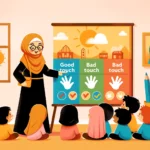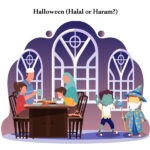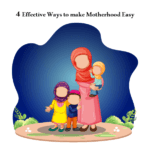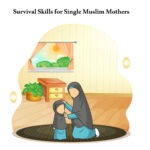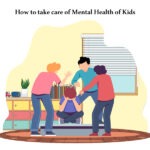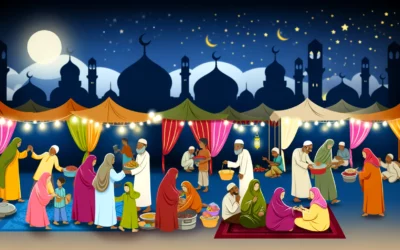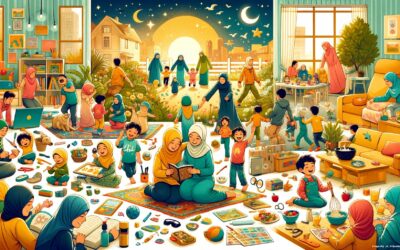In the heart of our ever-changing world, Muslims in the West are standing up, shining bright, and making a difference. They’re at the core of a moving and emotional journey that brings together people from all walks of life. If you’ve been watching the news, you’ve felt the outpouring of emotion as parents across the United States and Canada come together, standing up for what they believe in when it comes to their children’s education about LGBTQ lifestyles.
While this wave of passion includes parents of every background and belief, there’s a special warmth and strength in the dedication of Muslim parents. They’re pouring their hearts into organizing and being present, their voices resonating deeply. And as they share their feelings and stories, social media lights up, reminding us all of the power of community, connection, and caring.
Introduction to the Complex Conversation
Every generation faces unique challenges, and for Muslim parents in North America, navigating the discourse surrounding LGBTQ topics can be daunting. With the mingling of traditional Islamic beliefs and the dynamics of modern Western society, it’s crucial for parents to be equipped with the knowledge and compassion to address these topics constructively.
What Is LGBTQ?
History Of LGBTQ
The term “lesbian” has its roots in ancient Greek history, specifically on the island of Lesbos. This island was known for its association with Princess Shappo and Athis, two women who shared a romantic relationship. Lesbos was located in the center of the Egis Ocean, and it’s from this historical context that the term “lesbian” or “lesbo” originated to describe women who were romantically involved with other women.
Conversely, the term “gay” is used to describe men who are attracted to other men, categorizing them as homosexuals, similar to how “lesbian” refers to women who are attracted to other women.
People who experience romantic attraction to individuals of both genders, encompassing both men and women, are referred to as bisexuals or pansexuals. This constitutes a third category in addition to heterosexual and homosexual orientations. It’s important to understand that transgender identity is distinct from sexual orientation and falls into a separate category altogether.
The Fact of LGBTQ
The gender identities mentioned, like lesbian, gay, bisexual, and transgender, are human constructs related to psychology rather than being innate. Just as panic attacks have underlying causes and aren’t present at birth, identifying as gay or lesbian is a personal choice, not something predetermined.
Managing negative emotions and behaviors is possible, and those who avoid what goes against their beliefs may find reward and peace in this life and the hereafter.So now you understand that this ‘LGBTQ’ is not a natural phenomenon. It’s just a thought of an upset mind and needs to be treated not accepted.
The Effects of LGBTQ Phenomenon on the Young Muslim Generation
Indeed, the effects of LGBTQ+ issues on the young Muslim generation in North America can be distressing and challenging, impacting their mental and emotional well-being on multiple levels.
LGBTQ+ issues can pose challenges for the young Muslim generation in North America. It may lead to a sense of conflict between their religious beliefs and societal acceptance, causing emotional turmoil. Traditional values can clash with more progressive views, causing family generational gaps. Some young Muslims may grapple with their sexual or gender identities, adding complexity to their personal journeys. Additionally, the social stigma and potential isolation associated with LGBTQ acceptance can adversely affect the mental health and well-being of Muslim youth in the region.
The Problem Muslim Parents are Facing in North America
Muslim parents in North America, like parents of any background, may face certain challenges related to LGBTQ issues.
It’s important to address this matter delicately because it’s considered a serious issue in Islam. Parents often find themselves in a challenging situation, especially in a society where LGBTQ acceptance is becoming more common. They want to teach their children about the Islamic perspective and the potential negative impacts while also fostering understanding and respect.
To assist Muslim parents in North America who are navigating this challenge, we’ve compiled some important points to consider when discussing LGBTQ+ topics with your children.
Cultural and Religious Perspectives
Islam, like many major world religions, has definitive views on sexuality. Historically, Muslim scholars have often interpreted LGBTQ behavior as incompatible with Islamic teachings. However, understanding these perspectives requires delving deep into Islamic jurisprudence.
Modern Dynamics in North America
Contrarily, Western societies, especially in North America, have seen a surge in the acceptance and celebration of LGBTQ rights. For Muslim parents, this creates a crossroads of cultural and religious beliefs.
The Importance of Open Dialogue
Engaging in dialogue about LGBTQ topics shouldn’t be about controversy but understanding. It’s about building bridges between faith and contemporary realities.
Building Trust with Children
Children seek guidance, especially on complex topics. When they approach parents with questions about LGBTQ topics, it’s a sign of trust. Embrace these moments as opportunities to strengthen bonds.
Addressing Sensitive Issues with Compassion
Compassion should always be at the forefront. It’s essential to remember that while discussing beliefs, it’s crucial not to alienate or stigmatize.
How North American Muslims Parents Should Address the Topics of LGBTQ
Here lies the core of our guide. Addressing LGBTQ topics involves striking a balance between being informative and understanding.
Setting the Scene for Conversation
Choose a comfortable environment, free of distractions, ensuring the child feels safe and heard.
Utilizing Authentic Islamic Sources
Using credible religious sources ensures the discussion is rooted in knowledge. Seek guidance from renowned scholars and texts.
Balancing Traditional Beliefs with Modern Realities
While upholding Islamic teachings, it’s also essential to recognize the world our children are growing up in. Encourage them to respect all individuals, regardless of differences.
Discussing with Children that LGBTQ is Haram
The Incident Of The Nation Lut
The incident of Prophet Lot (Lut in Arabic) is the ultimate proof of the fact that how sinful is the act of homosexuality in Islam and what kind of punishment Allah gave to them.
In short, it involves the people of Sodom and Gomorrah, who engaged in sinful and immoral behavior, including homosexuality. Allah sent Prophet Lot to guide and advise them to follow the righteous path and abandon their wicked ways. However, the people rejected his message and continued their sinful behavior.
As a result of their disobedience and wickedness, Allah ultimately punished them by destroying the cities of Sodom and Gomorrah with a catastrophic event, often interpreted as a rain of stones or a powerful earthquake. Prophet Lot and his family were saved from this destruction due to their obedience and belief in Allah’s guidance. This story serves as a reminder of the consequences of the sinful behavior of LGBTQ and its prohibition in Islam.
You can tell your kids this story to your kids and let them know that there is no acceptance of LGBTQ in Islam.
Quranic Verse about the Prohibition of LGBTQ
Surah Al-A’raf (7:80-84): “And [We had sent] Lot when he said to his people, ‘Do you commit such immorality as no one has preceded you with from among the worlds? Indeed, you approach men with desire instead of women. Rather, you are a transgressing people.’ But the answer of his people was only that they said, ‘Evict them from your city! Indeed, they are men who keep themselves pure.’ So We saved him and his family, except for his wife; she was of those who remained [with the evildoers]. And We rained upon them a rain [of stones]. Then see how was the end of the criminals.”
These verses make it clear that the Quran condemns homosexual behavior as an immoral act, and the people of Lot were punished for their actions.
Hadith about the Prohibition of LGBTQ
Narrated by Ibn ‘Abbas: “The Prophet (peace be upon him) said: ‘Whoever you find doing the action of the people of Lot, execute the one who does it and the one to whom it is done.'” (Sunan Abu Dawood)
Narrated by Abdullah ibn Abbas: “The Prophet (peace be upon him) said: ‘Cursed is the one who does the action of the people of Lot.'” (Sunan Ibn Majah)
Conclusion: Building a Future of Understanding
In conclusion, the journey may pose challenges for North American Muslim parents, but it’s rewarding. While this topic may be unfamiliar to your generation, it’s not for your children. Your task is to nurture their strong Islamic beliefs and prioritize their mental and emotional growth. Teach them that being the Odd One Out doesn’t mean you are wrong; it makes you unique in your beliefs and upbringing. LGBTQ is just a BIG NO and a definite HARAM in Islam, and there is no second thought about that and this is what you need to transfer to your children.
FAQs About LGBTQ
Q1: How can I ensure my child doesn’t feel overwhelmed by our conversation?
A. Keep the dialogue open-ended. Allow them to express their feelings and ensure that their emotions are valid.
Q2: What if I don’t have all the answers to their questions?
A. It’s okay not to have all the answers. Seek guidance together, making it a journey of mutual growth.
Q3: How can I handle potential backlash from the wider community?
A. Stay firm in your beliefs but be open to constructive criticism. Engaging in community forums and discussions can also provide support.
Q4: How do I address misconceptions my child might have about LGBTQ topics?
A. Correct them gently and provide them with accurate information. Encourage them to do their research.
Q5: What if my child identifies as LGBTQ?
A. Respond with love and understanding. Seek guidance and counseling if necessary.
Q6: How can I keep the conversation ongoing and not just a one-time discussion?
A. Encourage regular check-ins and make it known they can approach you with questions anytime.




